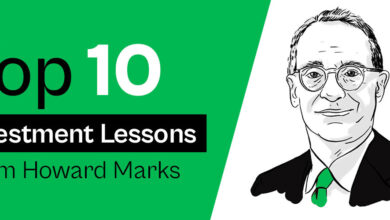Ten practical ways to pay off debt before retirement

Paying off debt before retirement is a top priority for many of you who are planning to retire in the near future. In my article Retirement Checklist, I discuss the 12-Step Roadmap for Planning a Successful and Carefree Retirement. One of the most important steps was paying off your debt. According to the Federal Reserve, American households owe $4 trillion in nonresidential loans and $10 trillion in mortgage debt. In today’s world, getting credit is easy and simple. Loans and credit card offers are lurking everywhere.
Why is it important to pay off debt before retirement?
Being debt free is an important milestone in becoming financially independent. Retirement opens a new chapter in new life. You can no longer rely on your working salary. Your retirement income will come from a combination of stable income sources such as Social Security, pensions, retirement savings, and possibly annuities. Your income will drop, your health care costs will go up, and your debt payments will stay the same. Having a large amount of debt during retirement will reduce your disposable income and put a strain on your financial strength.
For those of you who are committed to paying off debt before retirement, I’ve put together a multi-step guide that can help you tackle the challenges of becoming debt-free.
1. Set Your Goals
Setting your financial and retirement goals is an essential path in your life journey. Pay off debt before retirement begins with setting your goals. Having goals gives you structure and will prepare you for the future. If you don’t know where you are going, you can get anywhere. Following your objectives will bring you the essential milestones of life. Achieving your goals will give you a sense of accomplishment and boost your confidence.
2. Take control of your spending habits
If you’re approaching retirement with a lot of debt, you need to rein in your spending habits. You cannot be a big spender. So, as long as you spend more than you earn, you’ll have to take deductions. I know this is a painful job. Changing your lifestyle is not easy. Nevertheless, consider it a small and responsible sacrifice today so that you can live a better tomorrow.
3. Create a Budget
If you find that you spend more than you should, you need to set a budget. Many websites and mobile apps can help you track your income and expenses by groups, categories, and periods. Regular budgeting can help you stay away from big expenses and extravagance.
4. Build an Emergency Fund
An emergency fund is the amount you need to cover 6 to 12 months’ worth of essential expenses. Financially successful people maintain an emergency fund to cover high, unexpected costs. Yours can act as a buffer during rainy days if you lose your job or your ability to earn income. By creating an emergency fund, you can avoid taking on debt and cover temporary gaps in your budget. Suppose you do not have an emergency fund. Start by setting a certain percentage of your salary that will automatically go into your savings account. Don’t be discouraged if it takes a long time to build your rainy day fund. This is right. Look ahead and keep saving.
5. Track Your Loans
Did you notice that the first four phases of debt relief did not involve debt at all? I hope you agree that building long-lasting financial habits is the key to financial freedom.
So, if you’ve reviewed my first four recommendations, it’s time to look at your debt.
List all your debts – credit card, auto, mortgage, student, home equity, personal loan. Sort them by amount and interest rate. Pay attention to due dates and monthly interest charges. Don’t miss payment. Late or missed payments can result in heavy late fees and penalty charges. Stay on top of your debts. Track them daily and monthly.
6. Pay off the high interest loan first
I strongly recommend that you pay off your highest interest loan first. Credit cards have the highest interest rates and the most punitive late fees. If you have credit card debt, there is a high chance that you will need to settle it first. Remember, there are always exceptions to the rules, and every case is different.
Another popular theory states that you pay off your smaller loans first and then pay off the larger ones. The rationale behind this recommendation is that paying off small loans gives you a sense of accomplishment. You can also focus on the bigger picture once you clear off smaller loans.
Mathematically, paying off your highest interest debt makes more sense. Emotionally, paying off smaller debts first may be more effective. In the end, you may have found a happy medium. Use the approach that works best for you and your specific situation.
7. Pay Off or Refinance Your Mortgage
I recommend that you pay off your mortgage by the time you retire. Owning your own home without the burden of debt is the ultimate American dream and the secret to a happy retirement. In today’s world, there is nothing more liberating than owning your own home. Your home is your stronghold. This is a place where you can be yourself. You can host your family and friends and enjoy your favorite hobby.
Now, if you are still making mortgage payments, you can consider refinancing options. With record-low interest rates, today offers an excellent opportunity to reduce your monthly mortgage bill. It will certainly be easier to refinance your mortgage, while still working and having regular income and paytabs. I highly recommend that you shop for the best offers. Banks and mortgage brokers will offer you a wide range of interest rates, closing costs and refinancing terms. In general, stay away from bids with high closing costs. Evaluate your savings for each offer and choose the option that best suits your requirement.
8. Downsize and Move
Another popular way to control your costs and pay off debt before retirement is to downsize and move. Sometimes you can do both of them at the same time. Owning a large home requires higher maintenance, bills, and possibly higher property taxes. Moving to a smaller home in a more affordable location can save you a lot of money in the long run. The United States offers a wide range of affordable locations in smaller states and communities. Choose a location that best suits your budget, health insurance needs and lifestyle.
9. Work longer
If you are approaching retirement age and are holding debt, you may want to consider working longer. Working after retirement is no longer a stigma. Many retirees choose to work part-time, stay active, and earn extra income. The extra money can help you pay off the rest of your debts. You can use the extra cash to maintain your emergency fund or support your current lifestyle.
10. Don’t Touch Your Retirement Savings
Your retirement savings are sacred. They are your ticket to financial freedom. Paying off your debt before retirement by tapping into your 401k or IRA can be tempting. However, this strategy rarely ends well. Don’t withdraw your 401k or IRA savings unless you absolutely need it. Maintain your retirement savings until you have exhausted your other options. One, when withdrawing from your retirement plan, you have to pay taxes. In addition, if you are under 59, you may have to pay a penalty charge. Second, paying off debt without controlling your spending will only have a short-term effect. You will be back where you started in a few months or even years. And finally, tapping your retirement savings now will reduce your future income. How confident are you that you can replace your lost revenue in the future?

- Tax Brackets for 2022 – January 12, 2022
- 401k Contribution Limit 2022 – January 8, 2022
- Roth IRA Contribution Limit 2022 – January 8, 2022
- Choosing Between RSUs and Stock Options in Your Job Offering – November 2, 2021
- Getting After Tax Alpha and Higher on Your Investments – June 11, 2021
- 5 reasons to leave your robo-advisor and work with a real person – May 1, 2021
- Step by Step Guide to Planning Initial Stock Options Exercises – January 29, 2021
- Effective Roth Conversion Strategies for Tax-Free Growth – June 23, 2020
- 5 smart 401k moves to make in 2021 – August 4, 2021
- tax saving ideas for 2021 – September 16, 2021
View All Posts





